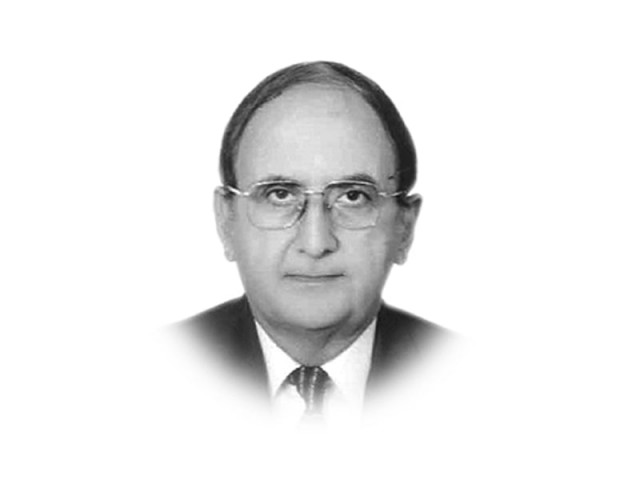Pakistan and March 23
To make celebrations on national days meaningful for ordinary Pakistanis, govt needs to focus on welfare of commoners

The writer is an independent political and defence analyst. He is also the author of several books, monographs and articles on Pakistan and South Asian affairs
If we return to the events that took place on March 23, it is not difficult to discern that the high ideals that inspired people in 1940 and 1956 have been lost to a great extent over time. We hear speeches and statements and read articles on or around this date expressing commitment to these ideals but their substance and spirit is conspicuously absent in political and societal processes as well as in the day-to-day affairs of the people of Pakistan.
The Muslim leadership in British India did not start with the demand for a separate state. Its primary objective was to secure Muslim sociocultural identity, rights and interests. Initially, the Muslim elite thought that this objective could be achieved through separate electorates, constitutional safeguards and guarantees, and adequate representation of Muslims in governmental institutions, jobs and elected bodies. They also demanded the establishment of a federal system with provincial autonomy in the hope that the Muslim majority provinces will be able to govern them in accordance with their political and societal ideals and aspirations.
The Congress party adopted a dismissive attitude towards these Muslim demands. The fear of being overwhelmed by an unsympathetic majority in the name of democracy led the Muslim League elite to review their support for a federal system in India and they moved on to demand a separate state. However, as late as 1946, the Muslim League was willing to work with the Cabinet Mission Plan, which would have established a loose Indian federation. This offer collapsed because the Congress party was not willing to accommodate the constitutional conditions laid down in the Cabinet Mission Plan because its leadership thought that these would strengthen the Muslim League’s demand for the establishment of Pakistan.
Pakistan was thus established to provide a secure cultural, political and economic future to the common people within a democratic framework that was also inspired by the ideals of Islam. Pakistan’s experience suggests that the political leaders failed utterly to secure the future of the common people in the post-independence period. Instead of establishing a democratic political order that created a sense of political participation and socioeconomic justice among the diverse populace, the dominant elite established a highly elitist model that served the interests of the dominant political and bureaucratic-military elite and the affiliate affluent section of the populace, like the feudal, tribal chiefs and industrial magnates. The dominant elite adopted a self-serving policy for the use of state resources and patronage. They adopted those development projects that gave them monetary gains through legal and illegal means. The development projects that had a large scope for such money-making were implemented on a priority basis rather than those that addressed the immediate problems of the common people. The net consequence of such a skewed development strategy was that the gap between the rich and the poor increased. The major victims of such policies were the common people. The neglect of the issues of human and societal development increased poverty, underdevelopment, unemployment and socioeconomic deprivation.
Pakistan’s federal and provincial governments are more interested in high-profile, publicity-oriented projects like quality highways and motorways and related construction projects, distribution of laptops to students and offering of bank loans at concessional rates to buy transport vehicles. A major part of the benefit of such projects has gone to the ruling elite and their affiliates. This produces prosperity for the middle, upper middle and upper classes at the expense of lower middle and lower classes. There is a serious neglect of education, healthcare, drinking water and civic amenities in Pakistan, which affects most adversely the lower middle and poor strata of society, who cannot afford to use private sector educational institutions for their children and private sector hospitals for medical treatment. This has accentuated inequalities that resulted in alienation of the common people from the current democratic system. Pakistan has democratic structures but there is a deficit in their quality. Such a political system cannot command voluntary loyalty of the people.
The current democratic system is becoming irrelevant for the common people because it has failed to ensure good governance and has not delivered essential services to them. The growing alienation of the people has weakened the political support of the PML-N’s federal and provincial governments that are securing their political future by conceding ample space to the military in governance, maintenance of internal security and fighting terrorism and extremism. The current democratic order is living on borrowed time mainly because of the blessings of the military top brass.
The civilian political leadership cannot create a credible civilian alternative to the military’s enhanced role without ensuring good governance and improving the quality of life for ordinary people. The government’s policies need to assign the highest premium to the welfare of the common people in a concrete and consistent manner if the celebrations on national days are to be made meaningful for ordinary Pakistanis.
Published in The Express Tribune, March 23rd, 2015.
Like Opinion & Editorial on Facebook, follow @ETOpEd on Twitter to receive all updates on all our daily pieces.














COMMENTS
Comments are moderated and generally will be posted if they are on-topic and not abusive.
For more information, please see our Comments FAQ